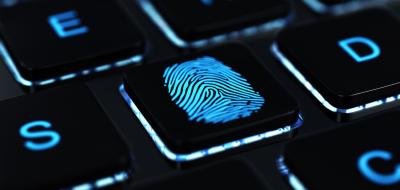In today's competitive job market, having a degree is key to advancing in your career and increasing your earning potential. This is true at both the bachelor's degree and master's degree levels: if you're interested in something new, and envision yourself entering a fast-growing, in-demand industry like digital forensics, getting a bachelor's degree can help you take the first step towards your goal. And if you have been working in a competitive field and want to take your knowledge and expertise to the next level, obtaining a master's degree is a great way to do so.
Digital forensics is an essential field in today's computer-driven world. As cybercrime becomes an increasingly prevalent threat to organizations across all industries and sectors, professionals with skills and training in computer forensics and digital investigations are in high demand.
Given the increased popularity of this field, it's important to find ways to stand apart from the crowd when it comes to applying for computer forensics jobs. One of the best ways to do this is to pursue an academic credential, which will not only give you an edge over your competition but demonstrate your technical abilities, skills, and knowledge to potential employers.
If you're considering going back to school to pursue a career in this growing field, you might be wondering how to select the right digital forensics degree program for you. While there are such programs being offered by institutions across the world, both on-campus and online, it's important to know what to look for in a digital forensics program, so you can be sure you're receiving a high-quality education that will position you for success.
How to Find the Right Digital Forensics Degree Program
While every individual's needs will vary, when you're looking for a high-quality digital forensics degree program, you should, in general, be looking for a program that meets the following criteria.
Is CAE-Designated
As the demand for computer forensics professionals has increased, the Department of Homeland Security (DHS) and the National Security Agency (NSA) have begun designating select institutions of higher learning as National Centers of Academic Excellence based on the quality of their degree programs. A CAE-designated school is considered to be one of the top cyber security schools in the nation, and offers a prestigious credential that employers recognize and trust.
Is Delivering Cutting-Edge Education
Computer forensics and digital investigations are highly technical, constantly-changing fields. Look for a degree program that clearly recognizes this and strives to deliver the most up-to-date instruction possible, so that your education is as relevant and timely as possible.
Emphasizes Hands-On Learning
While theory is important in all academic programs, it's important that your digital forensics program gives you opportunities for hands-on learning. A program that's designed with experiential learning in mind will help you learn to apply your skills to real-world environments, problem-solve, and think critically - all long-term skills that you can use for the rest of your career, even as technology changes and industry best practices shift over time.
A good degree program, regardless of whether it's online or on-campus, will be able to deliver that hands-on experience. For example, students in the Champlain College Online digital forensics programs get to virtually put their skills to the test through the renowned Leahy Center for Digital Investigation, our world-class digital forensics and cybercrime laboratory.
Fits Your Lifestyle
If you are a working professional, chances are, your busy schedule would make it difficult for you to attend on-campus classes. Look for a program that offers a flexible schedule, or a 100% online program, which will allow you to fit your coursework into your life.
Has Practitioner-Faculty
Look for programs that have faculty with real-world experience in the field of digital forensics - learning from experts who have actually worked on the issues they're discussing in a professional setting will go a long way towards ensuring that you have the skills and knowledge employers are looking for.
Is Regionally Accredited
Make sure that any institution you're considering attending is regionally accredited. Regional accreditation is the most rigorous and therefore the most highly regarded form of accreditation an educational institution can achieve, and is strictly monitored and reviewed by a board of higher education professionals.
Is a National Leader in the Industry
In a competitive industry, having a degree from a nationally-recognized institution can be a big differentiator between you and the rest of the applicant pool. For example, Champlain College's cybersecurity programs were named the best in the country by SC Magazine in 2013 and 2015, and the school was designated a DC 3 National Center of Digital Forensics Academic Excellence by the United States Air Force Office of Special Investigations.
Offers Multiple Degree Types
When deciding to go back to school, many individuals know the subject area they're interested in, but aren't sure which degree program to enroll in. Start by finding an institution with a strong computer forensics department, then spend some time thinking about your career goals, your prior educational experience, your technical background, and the time you have available to pursue your degree to help you decide the level that's right for you.
Going to a school that has many options in your field will give you the flexibility to start where it's right for you and will let you expand beyond what you thought possible. Perhaps you'll start with an undergraduate certificate in computer forensics and digital investigations and eventually obtain a master's in the field!
When considering what to look for in a digital forensics degree, the criteria above are essential. But don't stop there: you want to make sure that all your questions are answered, and that you feel good about the choice you're making. Continue to explore programs until you've identified one that meets your needs.
Download Program Guide
Learn what you can expect from our online bachelor's in computer forensics and digital investigation program.

Download Program Guide
I acknowledge that, by clicking the "submit" button, I am giving my express written consent to Champlain College and its representatives to contact me about educational opportunities via email, text, or phone, at the phone number above, including my mobile phone, using an automatic dialer, or pre-recorded message. Message and data rates may apply. I understand that my consent is not a requirement for enrollment, and I may withdraw my consent at any time.






